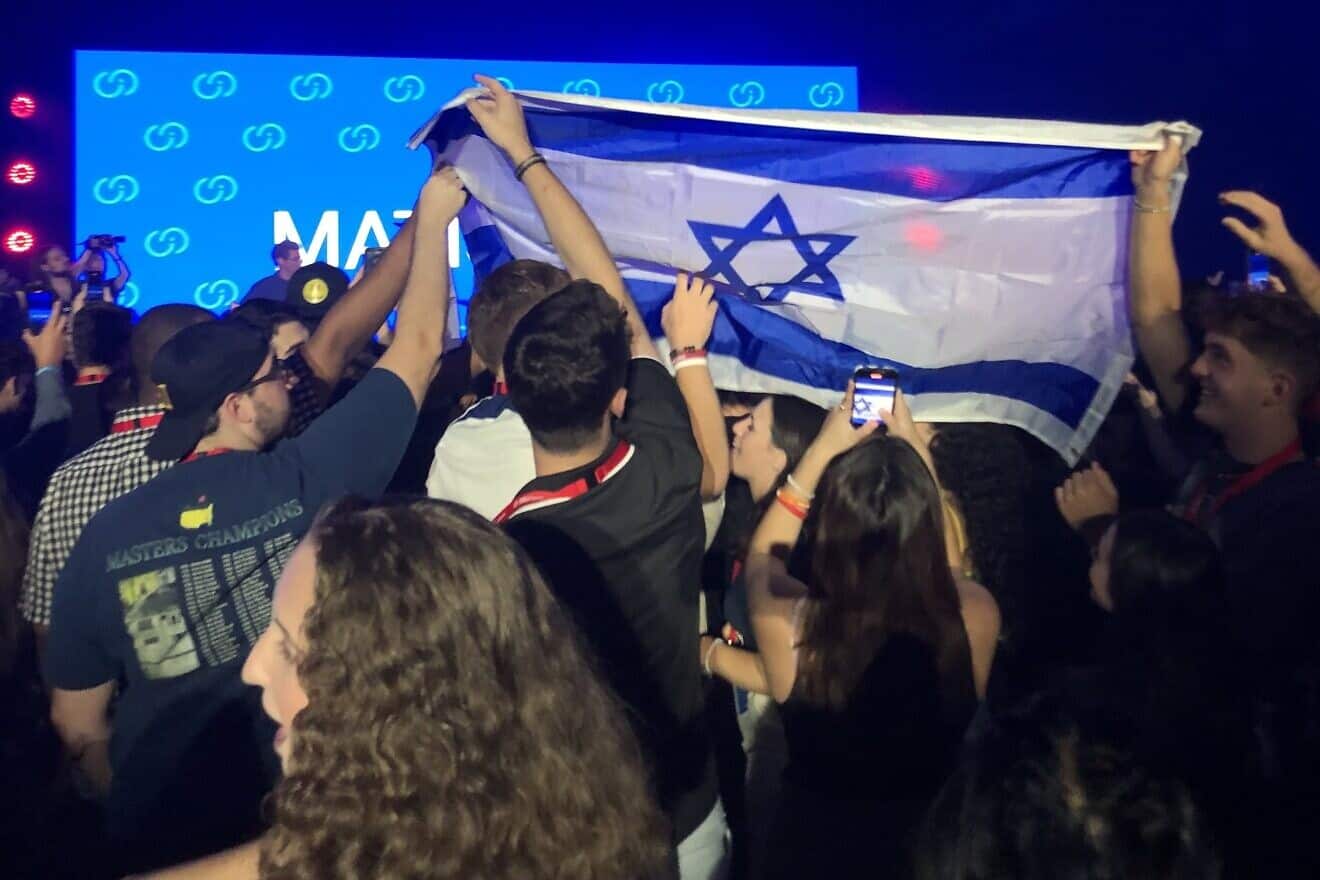Warren Weissbluth, a student at Rice University in Houston studying engineering and entrepreneurship, thinks of himself as “very much a fighter in nature.” At an airport in Greece, an Israeli woman, who noticed his Star of David necklace, asked if he was afraid to don it in public.
“I said, ‘Yeah, bring it on.’ What are you going to do about it? Come at me, you know,” Weissbluth told JNS on the sidelines of the recent Israel on Campus Coalition summit in Washington, D.C. “I’ve become more and more confident in my own skin, and I’m trying to pass along that strength to my fellow Jews.”
About a dozen other students who spoke with JNS at the event felt somewhat differently.
Elisha Baker, a junior studying Middle East history at Columbia University in New York City, told JNS that he figured he could handle the situation until the anti-Israel encampments surfaced.
“Once that shifted to kind of a 24/7 protest, where there were also not just insiders but outsiders mixing and sneaking things and people through the gates, it was dangerous,” he said. “Jewish students were assaulted on campus.”
‘Proud of my indentity’
Netanel Crispe, who studies U.S. history at Yale University in New Haven, Conn., said that he knows “that it’s likely I will deal with some kind of physical confrontation at some point.”
“Many of our members of our community, including myself, have received death threats and different things on social media or in person,” he added.
Imani Chung, a psychology and women’s studies double major at Stony Brook University on Long Island, N.Y., who is a Jamaican Jew, told JNS that she felt unsafe presenting before a class on “Jamaican Jewish ancestry.”
“The people that were in my class were at the encampment calling for intifadas,” Chung said.
Bali Lavine, a senior double-majoring in public health and Jewish studies at Tulane University in New Orleans, is president of the school’s Students Supporting Israel chapter. “Everybody should be able to live in peace, both in the Middle East and on campus, and everybody deserves to feel safe,” she said. “It’s really hard when Zionists feel unsafe on campus, when riots do break out and when there is violence at these encampments and rallies.”
“There have been numerous times where I don’t feel physically safe,” she added. “Mentally for the past 10 months, this has taken a huge toll on me.”
“I don’t feel like I’m welcomed on my campus,” Lavine said. “I feel maybe that my Asian heritage is, but not my Jewish identity, and I think that’s what’s really hard is I deserve to walk on this campus and be a student, and be proud of every aspect of my identity.”























